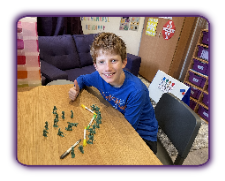
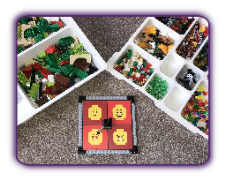
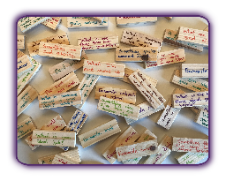
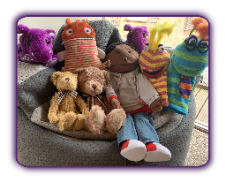
| Mentoring |
All our mentors are neurodivergent themselves which we find enables us to connect with the children we work with on a deeper level and we tend to instinctively understand each other. Being neurodivergent, we understand how important it is for everything we do with our students to be neurodiversity affirming. We never encourage masking and we ensure our students understand that the way they do things is totally ok - they live in a neurotypical world and there are lots of social rules and expectations that make up that world. We explore with them what those rules and expectations are and potential consequences of not following them but we make it clear that it's always up to them if they choose to abide by them or not. We teach our students how to advocate for their needs as we know how important this skill will be throughout their lives. Our mentoring sessions can take two formats:
Unstructured Mentoring Sessions
Unstructured mentoring sessions are mostly child-led with no set plan each session. The child chooses the activities they'd like to do during their session and they chat with their mentor while doing the activities about anything the child wants to talk about. There are no specific objectives for these sessions as the purpose is for the child to have a neurodivergent adult to build a trusting relationship with and be able to have a safe space to vent, offload, celebrate and process their thoughts and feelings. Unstructured mentoring sessions tend to work best for older children, children who are demand avoidant and children who don't have specific areas they need help with but would benefit from having someone impartial to chat to. Feedback for these sessions is guided by the child who may not want anything shared from their session.
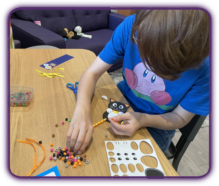
Structured Mentoring Sessions
Structured mentoring sessions are for children who need specific support with aspects of being neurodivergent. They are mostly adult-led with activities planned by the mentor. These are highly personalised to each individual child incorporating their interests to help motivate and engage them. Specific objectives are identified and agreed between the mentor, child and parents and these are reviewed regularly and adapted whenever needed. Where appropriate, we liaise with your child’s school especially if what we’re covering in our sessions would benefit your child there. Structured mentoring sessions tend to work best for younger children (approx. age 7 to 10) and children who are able to take direction from adults. Verbal feedback is provided after each session that details what was covered and how your child responded.

Most sessions are structured with a combination of talking and practical play-based learning activities and some activities are based on Cognitive Behavioural Therapy (CBT) techniques. There is also an emphasis on learning about how the brain works, how this relates to the child’s own experiences and teaching mindfulness skills that the child can then apply outside of sessions. We have developed some easy to understand and relatable analogies to help explain key concepts relating to learning, emotions and being neurodivergent. We also understand the importance of the interoceptive sense and we follow Kelly Mahler’s Interoception Curriculum and the Autism Level Up programme with students who we feel would benefit from them. Children participating in these more structured sessions are sometimes given tasks to do at home in between sessions. These are always optional but highly recommended to help embed the strategies they're working on in their sessions in their everyday life.
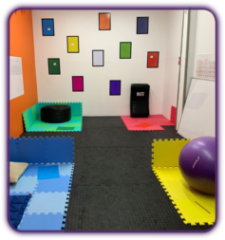
These are some of the topics that are often covered during structured mentoring sessions:
- finding out about what it means to be neurodivergent
- building self-esteem
- improving executive functioning skills
- managing anxiety
- managing anger and frustration
- understanding and managing emotions (in themselves and others)
- friendships
- communication
- building independence
- life skills
Children are told in their first session that if there’s anything they don’t want us to share with their parents then they just need to tell us that. We explain to them that the only time we won't be able to honour this is if we felt the child (or someone else) was at risk of harm. Mentoring sessions can be quite intense and often involve strong emotions so we have our sensory room children can use as well as lots of equipment to burn energy such as a punch box, swing and trampoline.
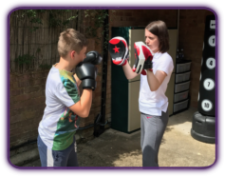
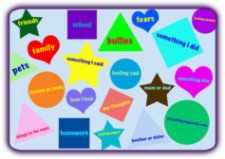
Children attending mentoring sessions are generally no younger than 7. Structured mentoring sessions work best on a weekly basis and tend to last up to a year working through the identified objectives. Sessions of 60 minutes' duration tend to work best but 90 minutes can work also. Unstructured mentoring sessions can work weekly, fortnightly or during school holidays. These sessions tend to be long-term helping the child through the ups and downs of growing up. Sessions can be 60, 90 or 120 minutes depending on the child.
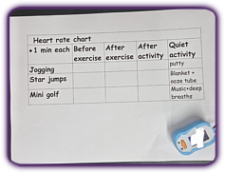
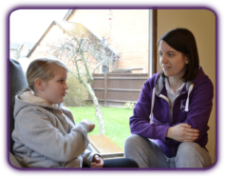
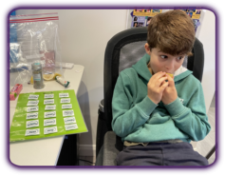
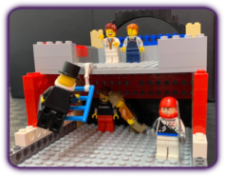
Cost per hour | |
Mentoring | £57.50 |
